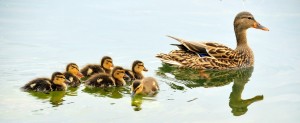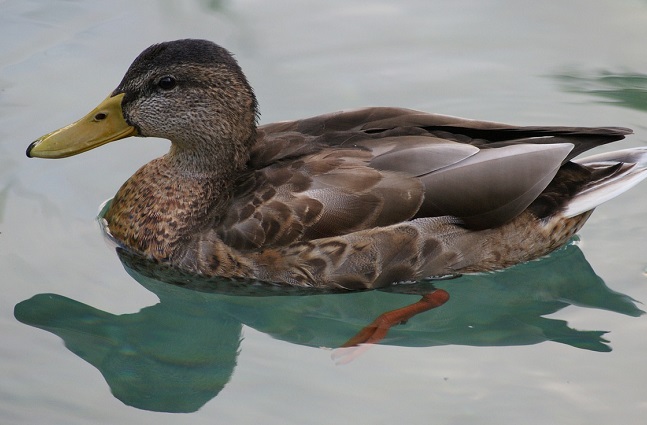 It seems like such a good thing to do. You have stale bread, why waste it? There are plenty of hungry ducks, geese and other birds who are hungry…
It seems like such a good thing to do. You have stale bread, why waste it? There are plenty of hungry ducks, geese and other birds who are hungry…
The reality is, bread is very unhealthy for birds and can actually be quite dangerous to their health.
Putting bread in canals and lakes pollutes our water. It can cause bacteria to grow, causing excess algae. If the bread becomes moldy and a bird eats it, it can cause aspergillosis, an often fatal lung infection. One infection can decimate an entire flock of ducks. Ducks that become dependent on eating bread will stop seeking out more nutritious food, leading to malnourishment.
If ducks become dependent on humans feeding them, they may hesitate to migrate. This could cause them to freeze over a harsh winter.
When I worked in wildlife rehabilitation, I saw the effects of malnourishment in waterfowl. Many were brought in because they were unable to fly. Feeding bread can also affect song birds. Mourning doves in particular should never eat bread. This species has a deep crop for storing food. They will fill their crop and digest it later, but when it fills with bread sometimes it gets stuck. The bread expands in the crop and ferments and the bird can no longer eat. People would often bring us several mourning doves found in their yard who were too sick to fly after consuming large quantities of bread.
So what should we feed the ducks? Pick up a bag of cracked corn or duck feed at your local feed store. If you don’t have a feed store nearby, defrosted frozen peas are a good choice as well as wild bird seed. Occasionally, grapes cut in half are a nice treat. Just remember not to overfeed. We want these guys trim and ready to migrate later on the fall!
What should you do with all that leftover bread? Make some bread pudding, stuffing or croutons. You can also add it to your compost pile to fertilize your garden next spring.
References
[2015] Mayntz, M https://birding.about.com/od/birdfeeders/a/feedingducksbread.htm
[2015] https://www.dec.ny.gov/animals/7001.html


